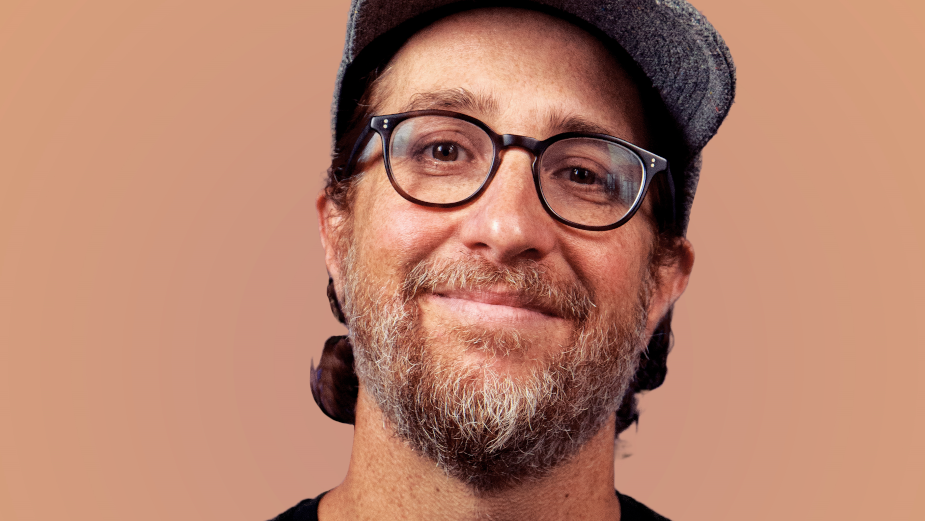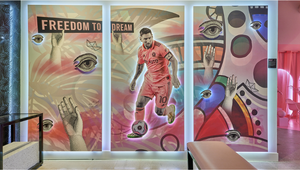
Creativity Squared: Steven Amato on Why Creativity is a Luxury

Steven Amato is founder and CEO of Contend, a data-driven creative studio based in Los Angeles with additional offices in Chicago, Toronto, Seattle and Dallas. Prior to founding Contend, Steven co-founded Omelet where he served as president and chief content officer until 2014. During his tenure, Steven helped grow Omelet from a start-up into an award-winning strategic and creative agency with clients like Microsoft, AT&T, HBO, Whole Foods, Walmart, The Academy Awards, DirecTV and Bill & Melinda Gates Foundation.
Steven's credits also include creating 30 + original and ground-breaking new media formats for clients and partners including USA Network, NBC, Samsung, Fox Mobile, Easton, Walmart, TNT, A&E and ABC.
What kind of creative person are you?
I would say I am the overly curious creative type who is constantly in a state of defining and solving problems. I think of creativity as an output of a deeper desire to solve problems. The more challenging the better. This is a constant state. Even when I’m sleeping. Like, what would we do if a large Earthquake hit Los Angeles and the city lost its supply of water? Or, how can we add a virtual layer to everything we are currently doing? How do we fight global obesity? I don’t really believe in ‘impossible.’ I believe that limitation is actually freedom for creativity. I also believe that a problem well stated is a problem half solved; we just need to focus and get creative.
How do you judge the creativity of a piece of work?
I judge all creativity by how it makes me think, feel and do. Is the piece thoughtful and imaginative enough to make me rethink an entrenched perception? To let me see the world in a new way. Did I feel something real? An emotion? A connection to me and my life? Is it a universal connection? Does it have the power to connect to millions of people? Does this connection have the power to make the world a better place? Does it satisfy a need I didn’t know I had?
I love the word 'content' because it also means 'state of being satisfied.' That’s not something I ever want to skip. And finally, I judge creative work by what it makes me do. Does the work inspire an action or impulse in me or others to do something? It could be to cry or laugh or to share or buy. Can this idea lead to an action that changes something that needs to be changed? I am deeply excited about the future of creativity as I think its true value is only beginning to be understood.
Tell us about how you like to make creative work.
Creative ideas are like children. They demand a lot of attention and if left unattended they tend to go astray. One way to avoid this is by focusing early in the process on how the story (idea) ends. By defining what success looks like. Once you know this, it becomes your true north and helps curate creative decisions. From here I like to turn to the audience we are trying to connect with. The key to our creative process is unlocking actionable insights about the people you are trying to reach and letting those insights be your lighthouse. Creativity is stringing together audience insights into a cohesive story that drives a measurable result. If this creative process is done correctly, you can almost guarantee success.
What external factors have shaped you and what can make or break a creative project?
I grew up in a working-class town. My parents met in the factory where they worked their entire lives. They taught me what work is. I skipped college and moved to NYC at age 17 to immerse myself in the theatre, where I learned how to tell stories and opened multiple theatre companies. Creating and producing these plays actually taught me how important marketing is. If you can’t hook an audience with a concept they will never come to your show.
After 10 years, I moved to LA where I learned the power of entrepreneurial thinking, technology and the business of selling ideas. And now, having worked at the best agencies in the world and founded two successful ones, I can say the world has never looked quite like it does today. Our relationship with foundational pillars like family, technology, travel, work, shopping and entertainment has changed forever. My advice to everyone: create with empathy and make sure your ideas reflect where we are today. And to clients—even in this programmatic age, remember that creativity is a luxury we all can’t live without.










